Futures Forum: The New Zealand 'experiment' comes to an end with banning non-residents from buying housing
Similar drastic 'solutions' have been suggested nearer to home:
Futures Forum: Devon: taxing second homes
Including in St Ives:
Futures Forum: Will banning second homes actually work?
At the time - last summer - a host of questions and articles appeared, including this from the Guardian:
'We're being slowly suffocated': UK readers on the problem of second homes
We asked readers across Britain what impact second homes have had on their communities – and what they think can be done

One reader feels second homes have skewed the demographic irreparably in Keswick, in the Lake District. Photograph: Christopher Thomond
Guardian readers and Matthew Holmes
Tuesday 31 May 2016
Earlier in May residents of St Ives, Cornwall, voted in favour of introducing planning laws that could restrict the number of second-home owners in the town by making newbuild properties available only to those who live there full-time. We wanted to find out from readers around the country about the impact of second homes where they live.
We heard from people living not only in coastal towns in Cornwall or Devon, but also inland areas such as north Wales and the Lake District, where the national park authority recently published a report on the impact of second homes on its communities.
As well as asking for views on the situation where you live, we also wanted to gauge opinion on possible solutions, and find out your perspectives on the proposal in St Ives.
There was some scepticism of how effective the St Ives plan could be. Jack Miller, from Suffolk, said: “It seems good in principle but it will take a long time to have a significant impact. How much new housing is there likely to be in St Ives anyway?”
We also heard a counterpoint from readers such as Barbara, from Leicestershire, who said she had to move for work, and renting out her second home was the only way she would be able to move back there in the longer term.
Guardian readers and Matthew Holmes
Tuesday 31 May 2016
Earlier in May residents of St Ives, Cornwall, voted in favour of introducing planning laws that could restrict the number of second-home owners in the town by making newbuild properties available only to those who live there full-time. We wanted to find out from readers around the country about the impact of second homes where they live.
We heard from people living not only in coastal towns in Cornwall or Devon, but also inland areas such as north Wales and the Lake District, where the national park authority recently published a report on the impact of second homes on its communities.
As well as asking for views on the situation where you live, we also wanted to gauge opinion on possible solutions, and find out your perspectives on the proposal in St Ives.
There was some scepticism of how effective the St Ives plan could be. Jack Miller, from Suffolk, said: “It seems good in principle but it will take a long time to have a significant impact. How much new housing is there likely to be in St Ives anyway?”
We also heard a counterpoint from readers such as Barbara, from Leicestershire, who said she had to move for work, and renting out her second home was the only way she would be able to move back there in the longer term.
‘We are lucky, I feel sorry for those people that are trapped in Devon’
My wife and I have a combined salary of £65,000, but when we came to buy in the South Hams we were only able to afford ‘make do’ properties. The market is geared towards second home owners and this inflates prices, so we packed up and moved to Herefordshire, where we have been able to afford a four bedroom detached property that we actually want to live in. We are lucky, I feel sorry for those people that are trapped in Devon.
At the moment some in Devon are benefitting from their parents’ good fortune and ability to sell off land/homes to second home owners. The next generation won’t have access to such a windfall. What we need is truly affordable housing – housing built to desirable specifications with the sale price tied to a cost plus profit formula and not tied to an inflated market price.
Sid Ward, teacher, 38, Kingsbridge, Devon (now living in Herefordshire)
‘Properties are empty, so the community is empty’
Second homes destroy the fabric of the town and spoil the very things that made it attractive to the second home owner in the first place.
Where I live properties are empty, so the community is empty. Those who visit don’t participate in the life of the town. In winter, shops close because there are fewer people, which is true of coastal towns anyway, but worse when the properties are holiday homes.
Local families can’t live in town, so the schools are under subscribed, there’s very little police presence because the population of permanent residents is small. We believe in freedom and democracy and each person’s second home is still their castle, but perhaps there should be a quota allowed – designated numbers allowed in each road so that whole streets are not denuded of the local people. I would like to see a law where people had to live in them at least 190 days a year.
Name witheld, 60, Whitstable
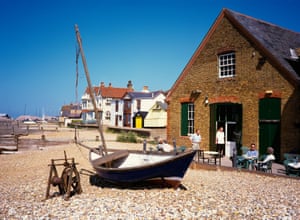
FacebookTwitterPinterest Business owners in the Whitstable have recorded their worst winter trade for 16 years, with many blaming second home ownership. Photograph: Neil McAllister/Alamy
‘I can’t afford a house for me and my young family in the area I grew up’
I grew up in an area now dominated by second homes, went to university, came back to work in a well paid profession and want to give back to my community, yet I cannot afford to buy a house for me and my young family. In the North Devon district the average house price is 11.4 times higher than the average salary – how is that affordable?
In areas particularly affected, I think capital gains tax breaks could be given to encourage second homeowners to sell properties, provided they are first offered to people with people who will live in them. This is a problem of supply and demand. If more houses are built it threatens to ruin the countryside and coast for everyone, including second homeowners. I do not blame second homeowners for wanting to live there but ultimately they can afford at least two houses so they are pretty well off.
Russ, solicitor, 33, now Leicester, originally north Devon
‘There is a very definite ‘them and us’ attitude, on both sides’
There is an imbalance in our community now because of second homes pushing up house prices and excluding young and/or first time buyers from areas of the island deemed desirable. This creates a divide amongst neighbourhoods. There is a very definite ‘them and us’ attitude, on both sides.
Those visiting second home owners who contribute to the local economy are in the minority, but they tend to have desire for products, goods and services that are inline with their London salaries rather than anything that local producers and shopkeepers can stock or sustain on a year-round basis.
Cap the numbers of homes in any given area, introduce a quota, enforce conservation restrictions. Perhaps introduce higher taxes on second homes. The proposal in St Ives was just for new builds: it doesn’t solve the problem and won’t even go so far as to send out a message.
Cath, restaurateur, 42, Isle of Wight
FacebookTwitterPinterest Aerial view of Cowes on the Isle of Wight, where many of the 1.6 million British second home owners have a property. Photograph: Alamy
‘My house is one fewer for those who live in the area’
I own a second home and worry about impact. In the honeypot towns and villages of Cumbria the issue is more complex than many would have it. Yes, in some areas village life is gone – witness beautiful Elterwater, now almost entirely holiday homes. But at the same time, holidaymakers bring in vast sums of money and keep a rural part of the UK, which has very little employment, working.
I think it’s important to differentiate between second homes and holiday lets. A second home may be occupied for only a few weeks each year. A holiday let – like mine – can be let for 50 plus weeks a year. A family on a week’s holiday will spend a lot locally: on food, entertainment and activities, in turn bringing employment.
Like many holiday let owners I am hugely sensitive to the issue, though. I bought in an area I love and part of that love is about the social mix and the residents – I can see the chicken and egg scenario which means my house, though successful, is one fewer for those who live in the area.
Dave, musician, 39, Ambleside, Cumbria
‘A little respect for the way of life people want to holiday in would help’
Nobody my age can afford a house in their home town. We’ve been priced out of the market by people who use their holiday homes once or maybe twice a year. It’s frustrating to see half the town unused and young people having to move away from their families. It’s such a waste. Why can’t people just rent a place if they’re only going to come once a year?
Second home owners should pay much more council tax so that they actually contribute to the local economy rather than stifling it. This could be calculated on a sliding scale proportionate to the amount of time they spend here.
Perhaps local governments could contribute a proportion of the asking price of a house if it is to be sold to a local who will actually live in it? Tourism is excellent and a main feature of our local economy. It’s not that people here want to remain insular and locals only, far from it, but a little respect for the way of life people want to holiday in would help preserve it for the future.
Name witheld, lecturer, Anglesey, Wales
FacebookTwitterPinterest Beaumaris, Anglesey. Data from the 2011 census suggested there were over 5,000 second homes on the island. Photograph: David Sillitoe for the Guardian
‘They are empty about 50 weeks of the year’
I live in a block of eight flats where six are second homes, rarely used. They are empty about 50 weeks of the year.
House prices exceed the low income retail holiday jobs for local people meaning the demographic of the town is skewed to rich retired people. There should be a limit on second home owners. Since it is a national park there are local connection restrictions, but this does not apply to all properties.
Name witheld, 67, Keswick, the Lake District
‘I say tax second home owners in a way that significantly helps the local community’
House price rises have been far outstripping the regional earning potential of local people for a considerable time, thanks to massive second home ownership. Local families often cannot now afford to purchase (or even rent) in their home village or town, while whole villages are left deserted during the winter months and houses stand empty for all but a few weeks of the summer because their wealthy owners want to keep them for their own private use.
Communities fail because the young families are the ones that keep the schools, local businesses and transport links alive. Planning decisions at local government level do not help this; they would rather overstretch towns by building huge new swathes of housing there instead of allowing smaller developments to take place in villages where the community would most benefit from new families, new full time community members and the revival of transport, school and small businesses.
I say tax the second home owners in a way that significantly helps the local community. Stop selling homes to non-residents. Allow locals to build on the edge of villages to re-establish real, full time communities and defend/develop vital amenities in those villages. Seek innovative and collaborative ways to reopen the locked up second-home housing stock to real local residents. I think the St Ives idea is a step in the right direction.
Name witheld, arts freelancer, Wadebridge, Cornwall
FacebookTwitterPinterest The Camel Trail, near Wadebridge. In parts of Cornwall 25% of housing is owned by non-residents. Photograph: ImagesEurope / Alamy/Alamy
‘Our village is like a big old retirement home’
Locals cannot buy a home in our lovely village in Northumberland. As a result, nearby ex-colliery towns and villages become over filled with a disproportionate number of young parents. Meanwhile, our village is like a big old retirement home – but without parking or other amenities.
The press (including The Guardian) could stop trying to extol the virtues of rural beauty spots. The mindless encouragement of the middle class to seek second homes does not help at all. So please less of the Let’s Move To ... articles.
Durg, 49, consultant, Northumberland
‘Technically ours is a second home, but it will be a primary residence’
We intend to move to an area popular with second homes. Like most we cannot afford to retire in our 50s, so our intention is to buy and do up our retirement home, spending weekends there then selling our family home once we can give up work and the kids are no longer in danger of returning.
All these anti-second home complaints forget about people in this situation – technically it is a second home, but it will be a primary residence. Many of us had to move from where we lived for work, is it wrong to want to return?
Barbara, 43, Leicestershire
FacebookTwitterPinterest Framlingham, Suffolk. It is estimated that second homes account for 40% of all houses in some coastal communities. Photograph: Alamy
‘Suffolk is being slowly suffocated by second homes’
The part of Suffolk I live in is an Area of Outstanding Natural Beauty. It’s a beautiful part of the world, characterised by flat reed beds, green rolling fields and pebbled beaches. I was born here and I love our county. However I feel it is being slowly suffocated by second homes.
I live in a small village – it’s these small communities that I think are suffering most of all. They simply don’t have the housing stock to support multiple residences sitting empty for long periods of time. The majority of villages within a 5-10 mile radius of me are 20-35% second homes. Some as high as 45%. This can’t be sustainable. I’m in my early 30s and I’m by far the youngest in my village. I think younger people are being pushed out of rural areas as second home owners purchase ‘desirable’ first or second rung houses for use as their own personal boltholes. The argument given in defense of second homes is that they contribute to an area. I’m sure they do, but they can’t possibly support a village socially and economically to the same extent as someone that lives there full time.
Visit an area by all means - Suffolk loves tourists. But use our fab B&Bs or hotels, don’t keep a property sitting empty solely for your exclusive use at weekends. Name witheld, Suffolk

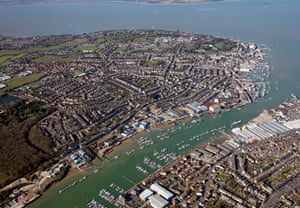
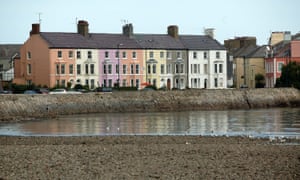
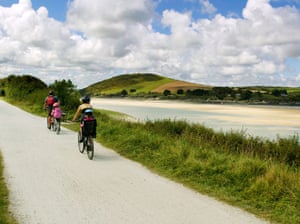
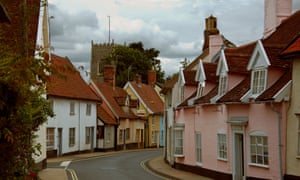
No comments:
Post a Comment